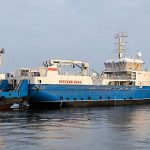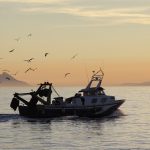NOAA Fisheries revealed that illegal seafood are now sold in domestic markets which strike a blow to the fisheries industry’s income and reputation. Every pound of mislabeled fish affects the fishermen, the processors, the reputation of restaurant chains and the trust of consumers, said Andrew Cohen, a special agent-in-charge with NOAA Fisheries Law Enforcement, in Goucester, Mass.
According to Cohen any one can make as much money dealing in illegal seafood as they can in heroin. He added that it is a white collar crime; an invisible crime, not easy to detect. Cohen was one of three panelists in the lively discussion on purposely mislabeling or substituting a cheaper seafood product for a more expensive/preferred product, a practice now commonplace in the seafood industry.
Jeff Passer, Cohen’s counterpart in Juneau, said that his office has tested crab and salmon to determine species, but that in general Alaska is not an import state and does not have a population which would prompt shipment of tons of fraudulently mislabeled seafood.
It is also illegal under the Lacey Act, federal legislation would prohibits trade in wildlife, fish and plants that have been illegally taken, possessed, transported or sold. Cohen told fishermen, processors and others attending the panel discussion that there are several ways to combat this illegal competition, by questioning waiters in restaurants and marketplace sellers of seafood as to the point of origin on their products.
Dannon Southall, a spokesman for 10th and M Seafoods in Anchorage, said his company has not had issues with illegally imported or mislabeled seafood because of a very close working relationship with vendors. It is told that shoppers in markets and patrons of restaurants too should ask specific questions about the advertised product, particularly if the price doesn’t look right.








